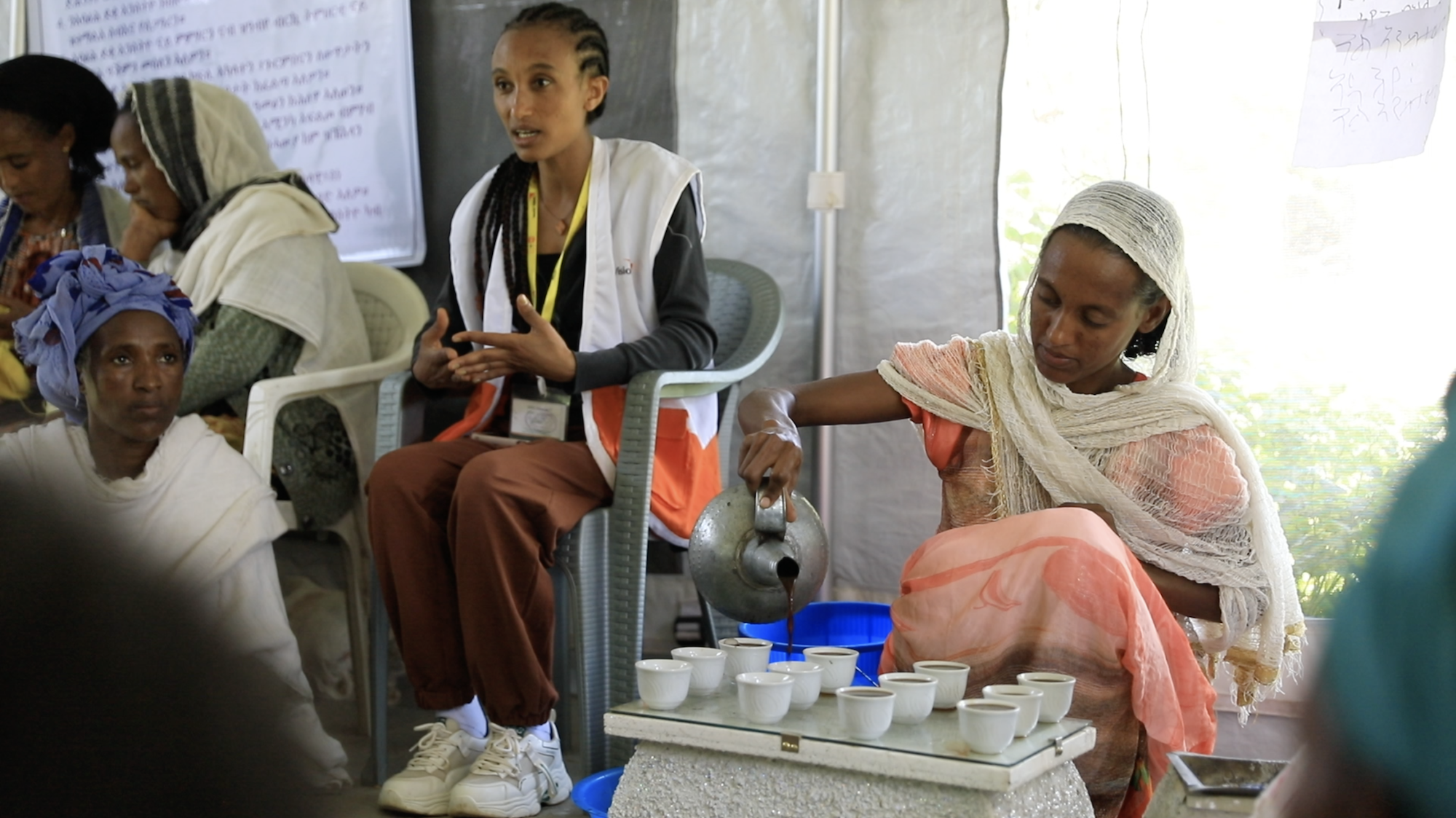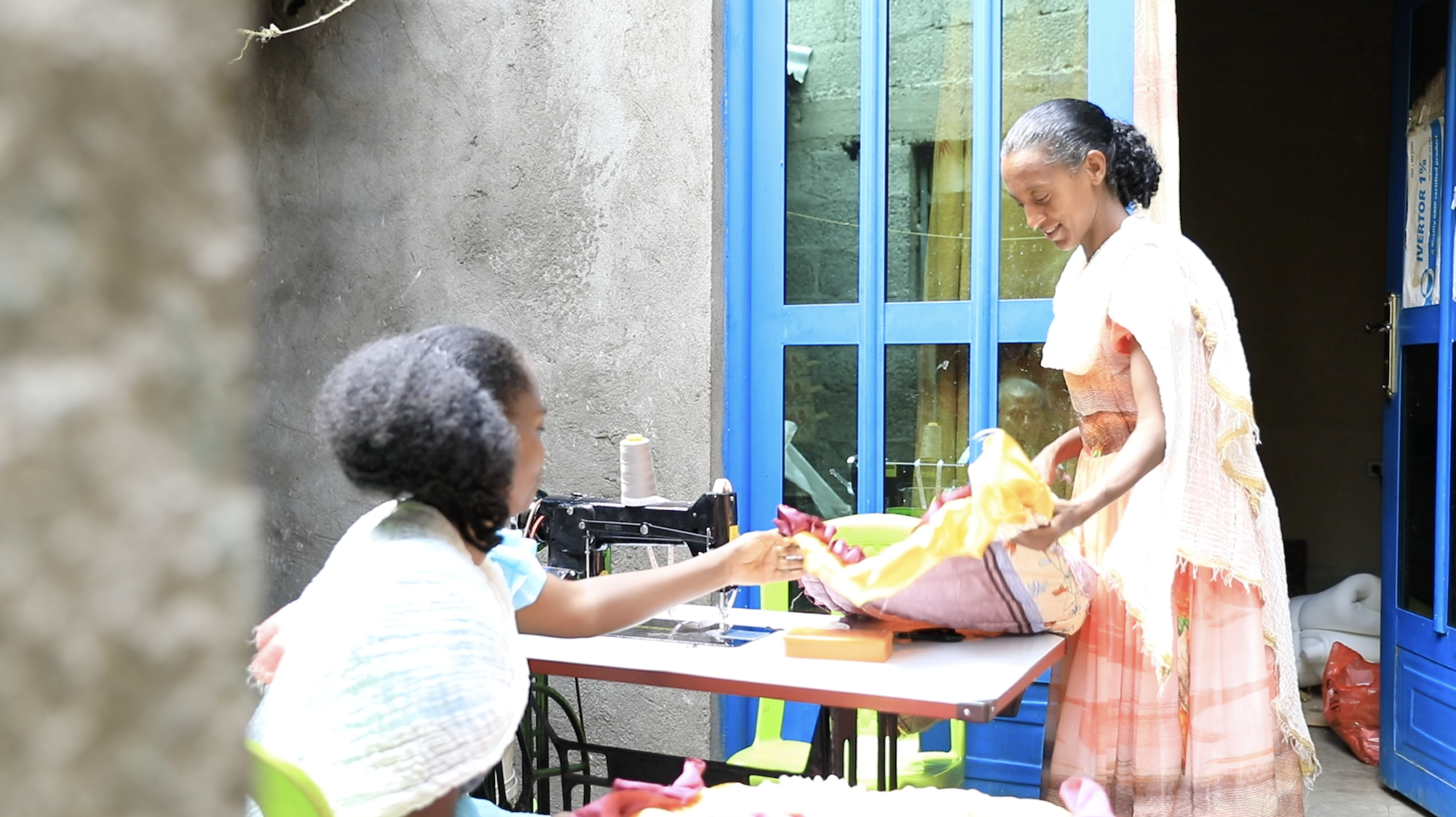From Struggle to Strength: A Women's Journey of Resilience and Empowerment
Hiwot Hiluf, a woman from the Tigray Region, has had an incredible journey over the past three years. She lives in Hiwane town, 60 kilometres (50 miles) from Mekelle city. She has confronted life's storms with resilience and courage. Hiwot, a 28-year-old mother of two, had her entire world upended by the conflict that broke out in the region in November 2020.
Previously, she used to reside in Adama, but she changed her mind and went back to her hometown. Her decision was for her safety and that of her children. Little did she know that her choice would challenge her strength and mental well-being.
The Tigray armed conflict that started on November 3, 2020, took a toll on Hiwot's mental health, pushing her into a dire state. Her aspirations for a better life for herself and her children seemed distant. As the situation worsened, Hiwot succumbed to stress and anger. Isolated and neglected by those around her, she recalls, "I completely lost my mind, and because of the chronic stress, I thought I would end up on the street."

Amidst the hardship, Hiwot's journey took a positive turn when she discovered that the Women and Girls’ Safe Space (WGSS) initiative was formed in Hiwane town. It was established by World Vision Ethiopia, and funding for the project was provided by the United Nations Fund for Population Activities (UNFPA). The safe space serves as an area where women and girls can socialise and rebuild their social networks, acquire contextually relevant skills, and access multi-sectorial GBV response services and information on issues relating to women’s rights, health, and services. A volunteer woman in the town played a pivotal role in connecting women like Hiwot with the safe space. "Having understood my situation, the volunteer informed me about the psychological support the safe space offers and advised me to join and I did," Hiwot says.
In the safe space, Hiwot shared her mental health challenges with others. "I informed Mihret, the protection officer, about my mental health, and she gave me psychological advice and encouragement to stay strong," she says. Soon, her case was referred to a specialist doctor, treated and recovered. Additionally, Hiwot was granted financial assistance to help cover medical expenses. Gradually, she recovered from her mental disorder.

She expressed her gratitude for the safe space, saying, "After my recovery, I was determined to serve other victims as a mentor to teach fellow women and girls, leading and giving them a helping hand. Utilising the money saved from her medical expenses, she started a tailoring shop, rented a sewing machine, and purchased supplies and accessories. Hiwot is sewing bed sheets and garments, which she sells in the local market and generates income from to support her children.
Hiwot is very thankful for the WGSS initiative, emphasising the impact of social workers and fellow participants who helped me handle my emotional wellness, empower her, and be up to who she is today. She attends the safe space programme twice a week, Thursday and Friday, which she considers a source of psychological relief and spiritual connection with other women facing similar challenges.
"A woman should have confidence in herself and believe she can overcome challenges. The Women and Girls Safe Space initiative has given me such good thoughts and self-confidence,’’ she concludes. Her story stands out as being of crucial importance and encouragement.
By Daniel Kefela, Communication Manager (NECR), World Vision Ethiopia